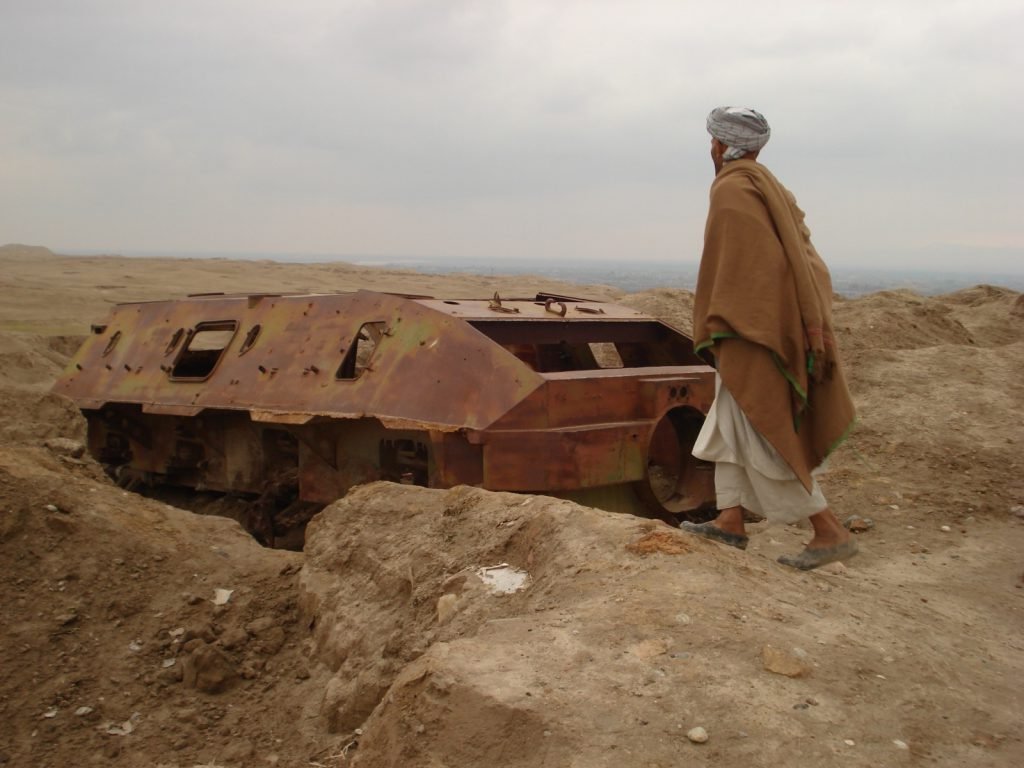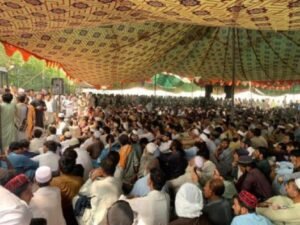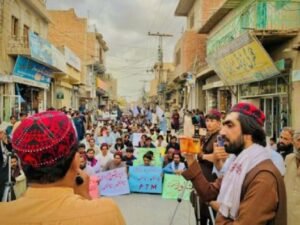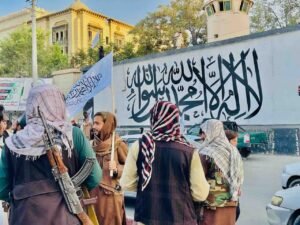Former ISKP Leader Exposes Terrorist Group’s Funding and Connections

Photo: @Ali Ahmad
By Shinwari*
If there was ever any doubt regarding Pakistan’s funding of the Islamic State of Khorasan Province (ISKP) it has been dispelled by a recent disclosure by a former senior Islamic State leader who has publicly acknowledged that the terrorist organization was, and may still be, financed by Pakistan. Sheikh Abdul Rahim Muslimdost was interviewed by the pro-Taliban media outlet “al-Mersaad.” On how the ISKP was financed, Muslimdost claimed that it received money both from the Islamic State in Syria and Iraq and from Pakistan. It also supported itself by kidnapping victims for ransoms in various countries. Muslimdost also stated that financing from Pakistan has continued to this day. In the interview, circulated on Twitter by the Afghanistan Analysts Network, Muslimdost said that initially (in 2015) the Lashkar-e-Tayyiba(LeT) had provided 50 lakh Pakistani rupees to the ISKP.
In the interview broadcast on twitter, he also said that “he was not the first Afghan who pledged allegiance to the Islamic State group in late 2014, but Mawlana Idris from Helmand, who graduated from Islamic Studies in Madina, was the first.” When asked how the fact that the ISKP receives money from Pakistan was compatible with the fact that the terrorist group attacked the Pakistani Embassy in Kabul on 9 December 2022, Muslimdost said that it was a false flag attack, “theatre” aimed precisely at denying rumors that the group was supported by Pakistan. “The Pak Embassy attack in Kabul was just a #Drama. Nothing happened to the Ambassador. Just a bodyguard was injured,” Muslimdost said. Muslimdost was a prominent member of the ISKP, a branch of the Islamic State (Daesh) active in Afghanistan, India, Bangladesh, Pakistan, and Myanmar, until 2015, when he dissociated himself from the organization. In fact, he was one of its founders.
During the interview with a pro-Taliban media group, the former Taliban leader also clarified that those infidels or unbelievers who are employees of the embassies and of the NGOs in Afghanistan and the IEA promised security and safety to them, should not be attacked or killed, as Islam did not permit to kill them, tweeted Afghan Analysts Network. The roots of the ISKP go back to 2014, when a Pakistani national Hafiz Saeed Khan was chosen as its first emir. Khan, a veteran Tehreek-e-Taliban Pakistan (TTP) commander, brought along other prominent TTP members, including the group’s spokesman Sheikh Maqbool and many district chiefs. Khan pledged allegiance to ISIS central chief, al-Baghdadi in October 2014. Many of these individuals were included in the first Khorasan Shura or leadership council.
ISKP’s early membership included a contingent of estranged TTP and Lashkar-e-Islam militants and the group emerged in Afghanistan’s Nangarhar province around 2010, just across the border from the former Federally Administered Tribal Areas (FATA) of Pakistan. The appointment of Khan as ISKP’s first emir, and former Taliban commander Abdul Rauf Khadim as his deputy, facilitated the group’s growth, utilizing long established recruitment networks in Afghanistan and Pakistan. The linkages between ISKP and other terror groups, as also with the Pakistan’s ISI are well known. With decades of experience in manipulating and managing the contradictions and conflicts between various terror organisations and using them to advance security and foreign policy agendas of the Pakistani state, the ISI created the ISKP with the objective of weakening the TTP operating inside Pakistan. The other objective was to pit the ISKP against the Afghan Taliban, which at that time appeared to be moving away from its mother ship. The whole Taliban-vs-ISKP narrative in fact came out from the Pakistani deep state.
The ISI is a past master at pitting one group against the other, using one group as a foil for the other, raising the profile of one group to increase leverage with another group, making rivals come together for a specific purpose and then forcing them to go their separate ways. This is something the ISI has used to great effect in its ‘War Through Terror’ strategy. When the US launched airstrikes against the Islamic State in Syria and Iraq in 2014, the ISI quickly established a branch of the Islamic State in Afghanistan, known as ISKP, whose leaders were drawn, from pre-existing terrorist groups. The West justified counter-terrorism cooperation with Pakistan then mainly based on a perceived need to counter the ISKP. The same argument was used to justify political and security cooperation with the Afghan Taliban. This ignored the basic fact that the Al-Qaeda, Afghan Taliban, Haqqani Network, TTP, and ISKP are all part of the ISI terrorist ‘basket’ to serve their strategic interests.
A classic example of this strategy became apparent in 2020 when the ISI attempted to push the Haqqani Network (HN) to increase its stake in the ISKP to retain its leverage in Afghanistan. The ISKP was tasked to front attacks for the HN and LeT. This became clear from interrogation of ISKP leader Aslam Farooqi, a Pakistani national. Farooqi, who had links to both the LeT and TTP was arrested by Afghanistan’s National Directorate of Security in early April 2020. At that point, ISKP units in Kabul and Nangarhar were under the firm control of Sirajuddin Haqqani, deputy leader of Taliban. Besides being part of the intelligence and reconnaissance gathering network, ISKP was also attacking Kabul in tandem with the HN group. The ISI helped the HN to open channels of communication with the ISKP’s Imam Bukhari faction to bring it within the fold of “Khilafat-e-Islamic Khorasan” and maintain strong operational cooperation. At that time. the ISKP had three factions, Aslam Farooqi, Mauvviya and Imam Bukhari.
The approach of the deep state in Pakistan towards Afghanistan and in particular the US, had a major role to play in this matter and helps us understand the strategic context in which Pakistan played its war through terror strategy. Notably, Pakistan’s military remained determined to orchestrate the Taliban’s return to power in Afghanistan, despite overtly collaborating with the US in the war on terror. As part of the means used to achieve this end, the ISI created the TTP in late 2007 and the ISKP in 2014.Just how damning Muslimdost’s revelations are for Pakistan (and the US) may not be immediately obvious. The ISKP, among its many nefarious activities, has killed dozens of members of Pakistan’s religious minorities. It is ironic that Pakistani citizens are killed in Pakistan by terrorists funded by money of Pakistan’s taxpayers, including the victims themselves.
* Author chooses a single pseudonym. Shinwari is a freelance journalist based in Peshawar, Pakistan.
Note: The contents of the article are of sole responsibility of the author. Afghan Diaspora Network will not be responsible for any inaccurate or incorrect statement in the articles.





